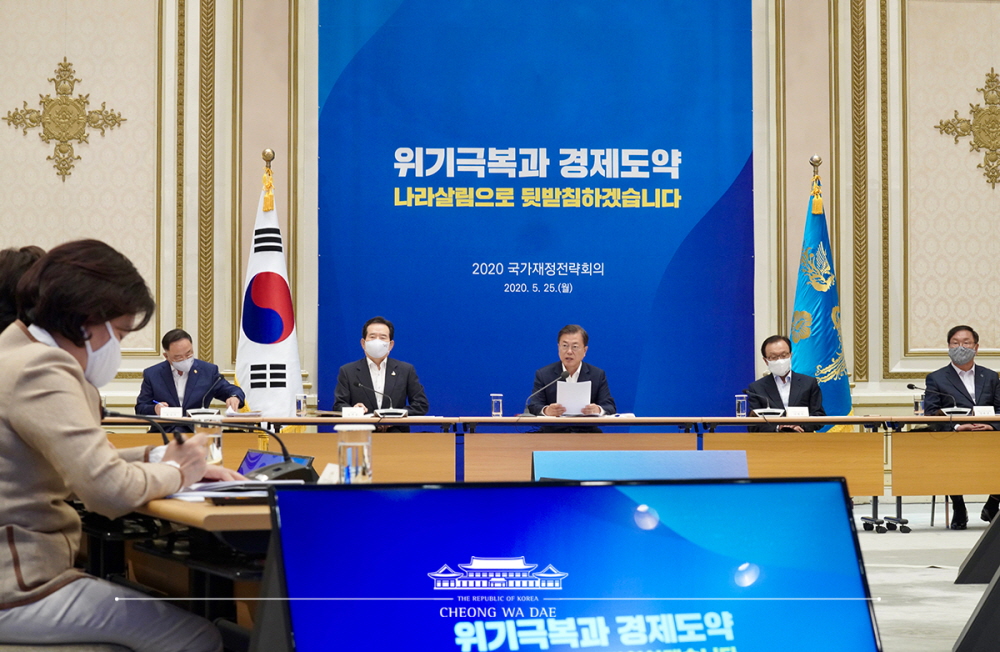이 웹사이트는 제19대 대통령 임기 종료에 따라 대통령기록관이 「대통령기록물 관리에 관한 법률」에 의해 이관받아 서비스하는 대통령기록물입니다. 자료의 열람만 가능하며 수정 · 추가 · 삭제는 불가능합니다.
다만, 「개인정보보호법」에 의하여 개인의 정보를 보호받기 원하시는 분은 관련 내용(요청자, 요청내용, 연락처, 글위치)을 대통령 웹기록물 담당자(044-211-2253)에게 요청해 주시면 신속히 검토하여 조치해 드리겠습니다. 감사합니다.
MEDIA

By Kim Young Deok and Yoon Sojung
President Moon Jae-in on May 25 urged the government to muster all of its fiscal capacity to cope with the economic crisis stemming from the novel coronavirus disease (COVID-19).
In the National Fiscal Strategy Meeting at Cheong Wa Dae, he called the nation's economic slowdown an "economic wartime situation" in which the pandemic has hit the export, service and manufacturing sectors especially hard.
Saying sufficient water to put out a fire early can prevent a bigger blaze, the president highlighted "bolder fiscal moves."
On the government's five previous emergency economic meetings that injected a combined KRW 250 trillion to help small business owners, those at a disadvantage when finding employment and reeling sectors, he said, "It (fiscal spending) should reflect our society's desired direction and goals and also play a leading role in addressing the suffering of the people during an economic crisis."
"Fiscal spending should serve as a breakwater to stem waves of economic shock and as pump-priming to hasten economic recovery."
On the contraction of the real economy especially in the job and export markets, the president said, "The third supplementary budget should incorporate sweeping support to expand the employment and social safety nets, protect both businesses in crisis and people's jobs and revive economic vitality," while emphasizing the need to quickly allocate the third supplementary budget.
The chief executive also reaffirmed his plan for a new leap in the post-COVID-19 era.
He said his administration will build a foundation for sustainable growth through a "digital New Deal" of government-created, future-oriented jobs and "Green New Deal" projects expected to lead to more eco-friendly employment
On fears over worsened fiscal soundness, the president said, "Korea’s fiscal condition is one of the soundest among the OECD (Organisation for Economic Cooperation and Development) member countries."
"The country's government debt-to-GDP ratio – after reflecting the second supplementary budget – stands at 41 percent. Even after factoring in the third supplementary budget, the ratio is much lower than the OECD average of almost 110 percent."
President Moon also urged each government ministry to carefully review its spending priorities by considering changes to the situation before and after COVID-19. He also asked for the National Assembly's cooperation to pass a bill on the third supplementary budget bill and expedite effectuation.
***



